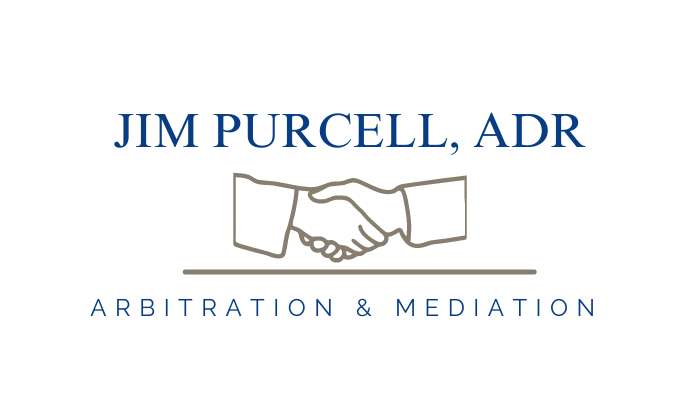The subject at hand is mediation, the attempt at resolution of a dispute consensually, facilitated by a trained mediator. We all know that, but let’s for the moment consider those traits and skills that make a great mediator.
Setting the Tone: A great mediator will set the tone at the outset, which usually is during the initial telephone conference with counsel. The mediator will make it clear that he/she insists on courtesy and respect at all times, referring to the objective of reaching settlement–not inflaming the parties. The day of mediation will be different. Hyper-aggression must be shelved. The mediator will let counsel know that he/she will mention this directly to the clients on the day of mediation to give counsel “cover” to act in a more conciliatory fashion.
Protect Counsel–No Surprises: A great mediator tries to avoid surprise and embarrassment of counsel and the parties as much as possible. The mediator understands that mediation day will not be easy for counsel. They are performing a somewhat unnatural act with the client present. It will at some point become emotional for the client. To that end, the mediator will ensure that the laweyrs understand the process that will be followed, and even some of the questions that will be put to counsel and the client in caucus, confidentially. A great mediator understands that client expectations must be managed, and gently so. In fact, a thoughtful mediator will speak directly to the clients at the outset of the mediation, mentioning that their lawyers are trying to do the right thing by them by attempting to settle. He/she will caution the clients that this is not a sign of weakness, or an abandonment of their obligation of zealous representation. Anything but. Today is different. Tomorrow, if there is no settlement, zealotry can again be the standard.
Confirm with a Written Mediation Agreement: A written Mediation Agreement, signed by counsel on behalf of their parties, accomplishes a number of things. Thoughtful drafting up front helps to avoid misunderstandings, and once drafted, it can be used by the mediator repeatedly with mere tweaking. It addresses process, fees, disclaimer of representation of the parties, party representative settlement authority, confidentiality, immunity from liability, written submissions, timing, ex parte communications, and logistics on the day of mediation. It also signals that the mediator is taking this seriously and will be prepared. The mediator usually sends this out to counsel in advance and expects it returned, signed, with the fee and any written submissions, usually at least seven days before the mediation.
Disclosures: A mediator should disclose any potential or real conflicts in writing to counsel. While not as crucial as in arbitration given that the mediator is not a decision maker and cannot compel settlement, it recognizes that fairness and impartiality are required. Once disclosed, counsel and the parties can determine whether to proceed or select another mediator.
Ex Parte Communications: Unlike arbitration or court litigation, ex parte communications between the mediator and counsel are permissible, and in fact are a superb tool to get to the heart of a matter confidentially with one side or the other. It can give insights to the mediator to assist him/her in the quest of resolution. Questions such as: “Are your client’s expectations realistic?” can be asked. Whether the mediator gets a completely candid response or not remains to be seen. Of course, such matters are kept confidential by the mediator and not disclosed to the other party.
At the Mediation: Again, tone is critically important. The mediator must avoid appearing more friendly to one side than the other. Small talk with old friends should be shelved for another day. Some mediators do not even enter the joint session room until both parties and counsel are present and ready to proceed.
At the onset, the great mediator will speak as much to the parties as to counsel. This is their “day in court” so to speak, and a great mediator will lose no time establishing a rapport directly with the clients. And how does he/she do that? By requiring courtesy and respect; telling them something about him or her self to show experience in such matters, or perhaps some personal background; by quietly but firmly outlining the process to be followed; and then for a while, by active, attentive, and respectful listening. A great mediator knows that to achieve success, he or she must establish credibility and rapport with the clients. This is especially true if a client is relatively unsophisticated in legal matters.
While credibility and rapport can start to be built in the joint session, where it can blossom is in caucus when the parties are separated and each can be talked to privately and confidentially. A great mediator will take a little time to draw the client out–perhaps about their business, profession, or family. A great mediator will empathize with the client. There always are two sides to a dispute. He/she will listen, and avoid being judgmental, at least for a while. The mediator might even try to get the client to speak directly in the joint session, of course with counsel’s permission. This “getting it off his chest” activity can help (or sometimes backfire).
There is some disagreement amongst mediators concerning whether the mediator should be strictly facilitative (not voicing an opinion on the merits or the positions taken by the parties) or whether they should be evaluative (at some point, telling a client or lawyer that their position appears unrealistic or perhaps “a bit” aggressive). Done correctly, it is submitted that some evaluation at the right time can be helpful to achieving resolution, particularly if credibility, rapport, and respect have been established. But such evaluative comments must be made confidentially in caucus, of course, and not early in the process.
And even purely facilitative mediators will tell the parties of the realities of such things as:
-
The arduousness of court trial, length of time to trial, and cost of discovery and trial preparation;
-
The resource misallocation required to go it in court, including distraction from personal or business matters, time and energy spent, the emotional cost, etc.;
-
The vagaries of court trials (whether judge or jury), including that judges and juries don’t always “get it right;”
-
That over 97% of all cases settle. Why is yours different? And if you wait until the eve of trial to settle, the likely settlement will be depressingly similar to what you could have settled for at a mediation 2 years earlier and before you spent [fill in the blank] fees and costs in trial preparation.
Subject Matter Expertise: Of course, knowing the lingo, the business, and the law of the matter in dispute is helpful. It helps to establishe credibility with counsel and the client. It can, however, be overemphasized when choosing a mediator. The mediator, of course, will not decide the case, nor even tentatively get to the bottom of the issues. The true value of the mediator is to accept that there are disagreements on the vital issues and try to get the parties to be realistic in their assessment of their positions, what the pros and cons are, and the merits of early settlement. That takes touch and tone, perhaps more than subject matter expertise. It can be said that litigation expertise is as valuable in establishing credibility as subject matter expertise.
Persistence: A great mediator never, never, ever gives up. It is remarkable how early parties reach the frustration stage. They need the active encouragement of the mediator, and his/her enthusiasm. “It’s not unusual that you think you are at impasse, but believe me, we can settle this.” Or some such. When all are exhausted, the great mediator is just hitting his or her stride. Enthusiasm, optimism, and sheer persistence work a remarkable number of times. And if it doesn’t and the parties are packing their bags to leave, the great mediator will try to get them to consider reconvening on another day, or at least another conference call once all have considered what has transpired and gotten a little rest.
One seldom leaves after a settlement particularly happy (other than the mediator). Yet, the definition of a good settlement is just that. There always will be buyer’s remorse to some extent. Accordingly the great mediator will make certain that the parties know they did the right thing. “You may not believe it now, but you just did a very wise thing. You’ve achieved closure. You’re moving on with business/life. I am here to tell you that you did the smart thing today.” “Never second guess yourself for settling today.” Again, the words can vary, but the point is clear. Make them feel as good as they can about what they did.
A great mediator brings peace into the room by his/her presence, comportment, gravitas, persistence and touch. Such a person is to be valued.

